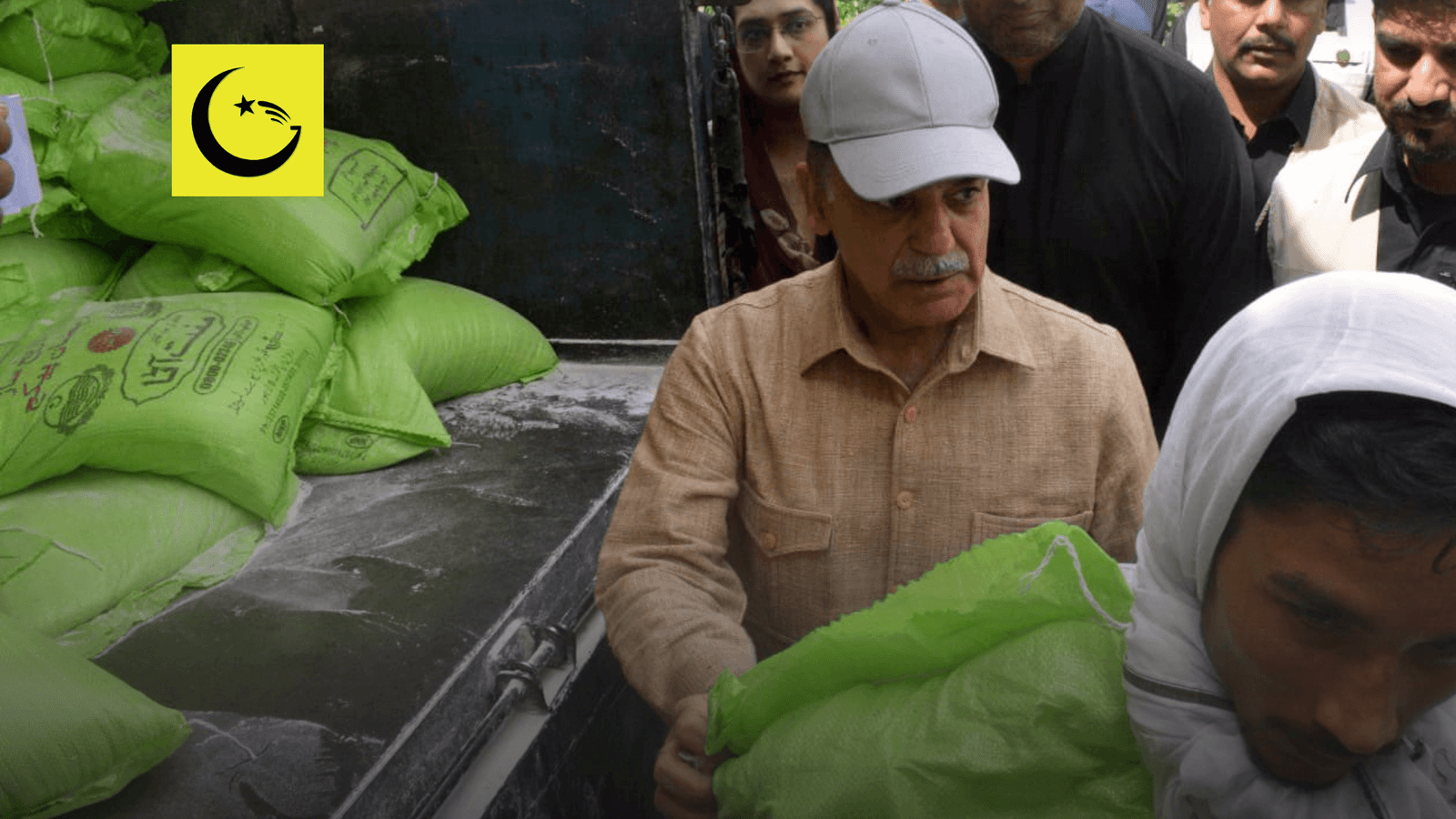Free Flour in Ramzan: Shehbaz Sharif, the Pakistani prime minister, declared that during Ramadan, 1.1 crore families in Punjab province will receive free wheat flour. The announcement was made to provide relief to the country’s inflation-ridden public. The free flour will be provided in the first phase under the special Ramadan package, and the federal government will provide support to the provinces to facilitate the poor segment of society.
Prime minister Shehbaz Sharif himself distributed free flour at some places during the Ramzan. See below some glimpses of that.
The Ramadan package is aimed at providing relief to the underprivileged people of Punjab and is the first of its kind. The Prime Minister has given the necessary authorities instructions to develop a plan to offer free flour to low-income households as part of the package. The announcement will provide much-needed relief to the people during the month of fasting.
The holy month of Ramadan is an important event for Muslims around the globe, especially in Pakistan, where the majority of the population is Muslim. During this month, Muslims observe fasting from dawn till dusk and engage in other religious activities like reading the Quran, performing special prayers, and giving charity. The Islamic holy month of Ramadan is very significant to Muslims. As it is said that the Prophet Muhammad, Peace Be Upon Him, received the first verses of the Quran during this month. It is a time for spiritual reflection, self-improvement, and giving back to society.
R E A D M O R E
BISP stipend increased by 25% by Bilawal Bhutto
Helping needy people is considered a religious obligation in Islam. Muslims are encouraged to give charity, known as Zakat, to the poor and needy. During the month of Ramadan, this obligation is emphasized even more, and Muslims are encouraged to give more generously. The distribution of free flour by the Pakistani government during Ramadan is an excellent initiative to help those in need. It is a positive step towards fulfilling the religious obligation of giving charity and helping the underprivileged.
It is worth noting that the initiative of providing free flour during Ramadan is not only limited to Muslims. Pakistani non-Muslim community members, like Sikhs, also donate and sell discounted goods during this blessed month to help the poor and needy. This shows that the spirit of giving and helping is not limited to a particular religion or community but is a universal human value.
The initiative taken by the Pakistani government to provide free flour to the poor during the holy month of Ramadan is commendable. The government has recognized the struggles of its citizens and has taken steps to provide some relief to them. The free distribution of flour will help ease the financial burden on the underprivileged and make their lives easier. This is a good step towards ensuring that the basic needs of the people are met and that they are taken care of.

In Conclusion:
The distribution of free flour during Ramadan is a positive initiative by the Pakistani government, and it is good news for the country and its poor people. This will not only provide much-needed relief to those struggling to make ends meet but also help fulfill the religious obligation of giving charity during the month of Ramadan. The government’s efforts to assist its citizens during this blessed month should be appreciated. And it is hoped that similar initiatives will be taken in the future to improve the lives of the underprivileged.
Images Credit: The featured image is taken from the Government of Pakistan’s official Twitter account and the rest are from Adobe Stock.
Like the blog? Share your thoughts in the comments section, and consider sharing them with your loved ones. Your support means the world to us!
Umar is an engineer by profession and a passionate writer by passion. He has a deep interest in sharing good news related to Pakistan and has been working hard to promote the positive image of his homeland. Umar has written numerous articles on various topics related to Pakistan, such as technology, sports, culture, and economy.

